10 things Arsenal fans can thank Arsene Wenger for
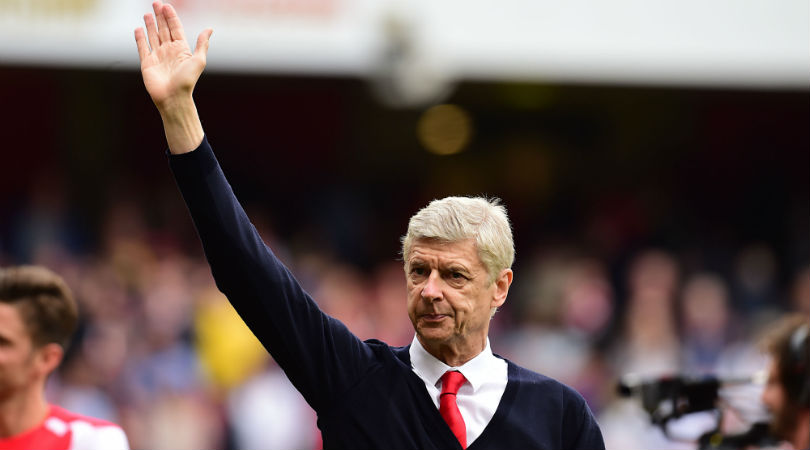
Reasons to be thankful as Wenger waves goodbye
It's finally happened: Arsene Wenger will say his goodbyes at the end of the campaign, a season ahead of schedule, following 22 years in the manager's chair at Arsenal. The Frenchman took the club to some incredible heights - particularly in the early years - but his legacy has been clouded by his decision to hang around beyond his sell-by date according to an increasing percentage of the Gunners' fan base.
When the dust settles, though, Arsenal supporters will realise they have plenty of reasons to be thankful for Arsene Wenger, from his modernisation of the game in England to the way he added to the Gunners' illustrious history.
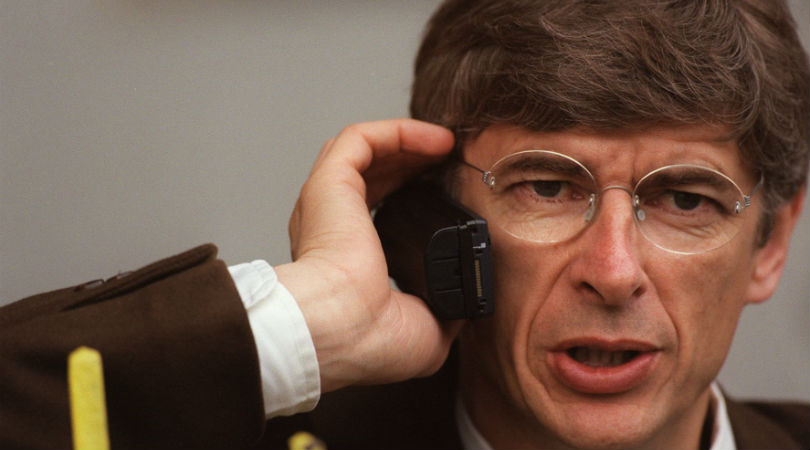
The modernisation of Arsenal
English football was a very different world when Wenger took the reins at Highbury in 1996, with the excesses of previous generations still lingering in the game. Indeed, the culture at Arsenal was such that players like Paul Merson, Tony Adams and Ray Parlour were just as likely to make the front pages as the back and the English national team had spent the summer being snapped drunk and disorderly around the world pre-Euro ’96.
The English game appeared "destined to remain anti-intellectual for eternity" according to journalist Jonathan Wilson. Wenger - the multi-linguist and economics graduate - immediately changed the way we spoke about football, prompting discussions about how multiculturalism, psychology and chaos theory were intrinsically linked to the game.
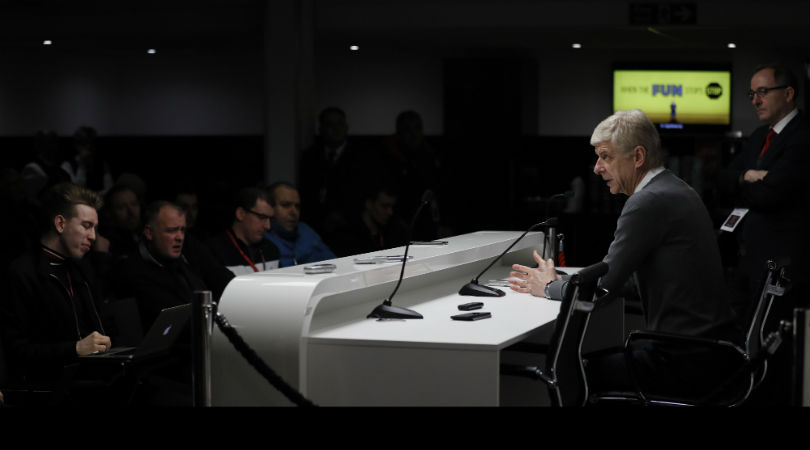
The modernisation of English football
Another topic Wenger was happy to discuss at length was the rationale behind changing his players’ diets and training routines. The former Monaco manager has since pondered the knotty issues of Brexit and lamented the decline of street football ("You have to fight to win impossible balls... when it is all a bit more formulated then it is less about developing your fighting attitude.")
Wenger's rich blend of metaphor, humour and razor sharp social analysis will be sorely missed. As the Independent’s Miguel Delaney recently wrote: "If you asked him a proper football question, you got a proper football answer, and usually a whole lot more."
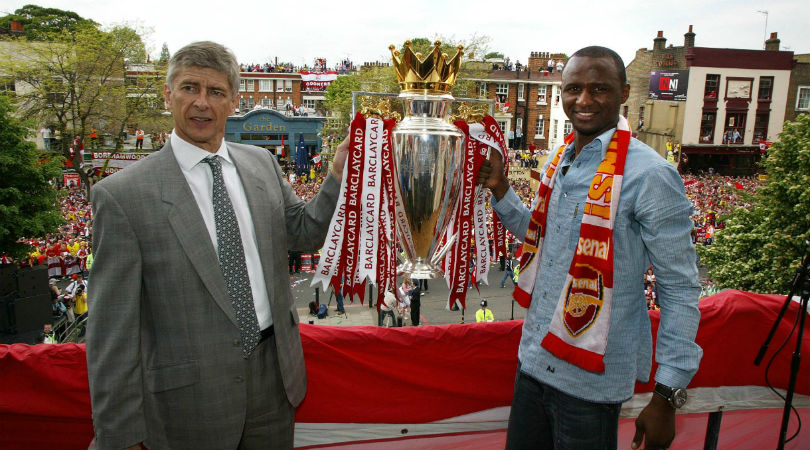
A fatherly approach to nurturing young talent
After 22 seasons in charge of Arsenal, Wenger has been accused of having too much power and influence. But what is often overlooked is the fact that such longevity has allowed him to nurture young talent, either after bringing in inexperienced first-team players from elsewhere or by promoting graduates from the club's academy.
Many players have spoken of Wenger's nurturing, paternal approach to managing youngsters and their appreciation for his methods. “Arsene nurtured me and helped me adjust to an alien football culture,” Patrick Vieira reflected in 2006. “Those early months, when you’re getting used to the sights, the sounds and the smells of the English game, can be challenging, and I’ll always be grateful to the boss for helping me navigate my way through.”
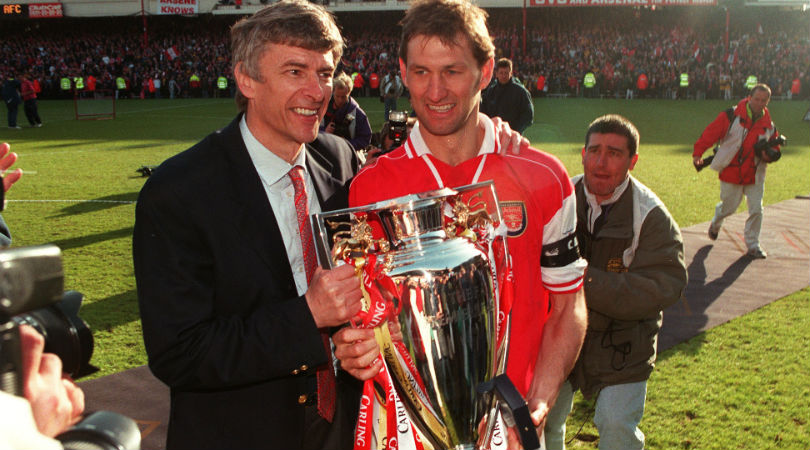
Bringing the best out of experienced players
Wenger’s fatherly approach wasn’t reserved exclusively for the younger players at Arsenal. A raft of other stars who glittered under his guidance - including Gilberto, Robin Van Persie and Kanu - have praised Wenger for his multicultural and meritocratic approach to the game and his mentoring skills. Others, including Emmanuel Petit, Alex Hleb and Nicolas Anelka have expressed regret that they didn’t stay at Arsenal longer, and that they missed Wenger’s patriarchal approach to his players.
Tony Adams, despite criticising Wenger as a coach in his recent autobiography, remains forever in his debt for helping him through his rehabilitation after admitting he was an alcoholic, and giving him the confidence to morph into a ball-playing centre-half. “He gave me a sense of freedom, in every way possible,” Adams said.
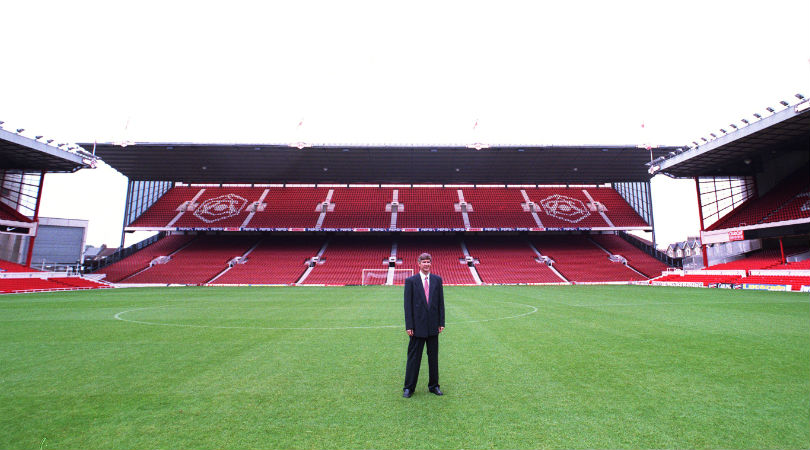
His understanding of Arsenal's prestigious history
Wenger immediately ingratiated himself with the Arsenal support upon taking the job, speaking at length about the club’s history and tradition, the marble halls and art-deco stands at Highbury and the work of Herbert Chapman.
“There is a unique feeling at this club,” he explained after his friend David Dein had convinced him to leave Grampus Eight. Wenger may now be derided about his reference to ‘core values’ but as Observer writer Amy Lawrence commented: “He takes the image of the club very seriously and knows that Arsenal are renowned for doing things in a certain way.”
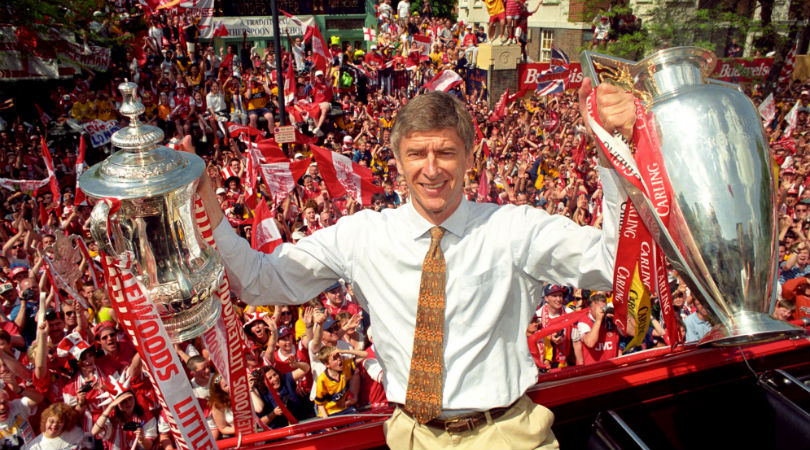
Writing new chapters in Arsenal's history
Wenger ensured the team seamlessly transitioned from George Graham’s earthy Britishness to his own more sophisticated style – with a season of Bruce Rioch in between – and added new dimensions to that rich history, especially in the early years.
The Double in 1998, the club’s first since 1971 and the 2002 Double when his team won the Premier League title at Old Trafford, the Invincibles of 2004 and all those great players – Henry, Pires, Vieira, Overmars, Fabregas, Van Persie and so many more.
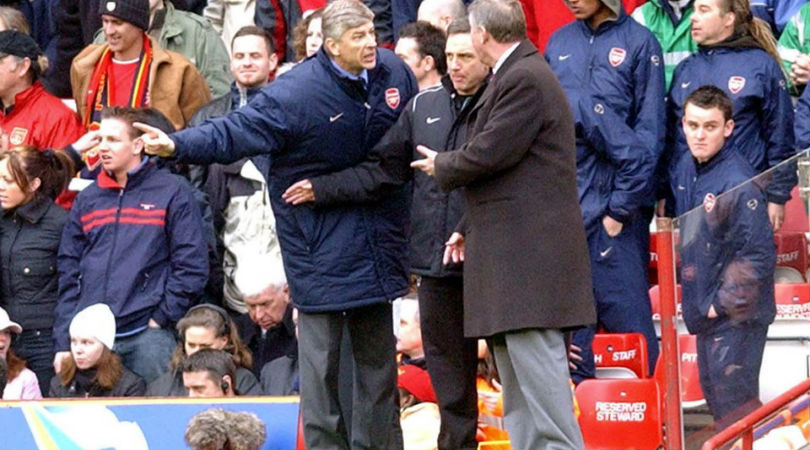
The greatest Premier League managerial rivalry
Wenger has become a figure of fun in some quarters in more recent campaigns, with his fallings-out with Jose Mourinho and Alan Pardew, his being banished to the stands at Old Trafford – where there was nowhere for him to go, leaving him stood on among the United supporters looking silly – and, of course, his continual problems doing up his massive coat.
It wasn’t always thus, and Wenger should be thanked for giving us the greatest managerial rivalry in Premier League history as he clashed with former United supremo Alex Ferguson. Wenger knew the Premier League was all about box office, and his feud with the Scot was a gripping soap opera for well over a decade.
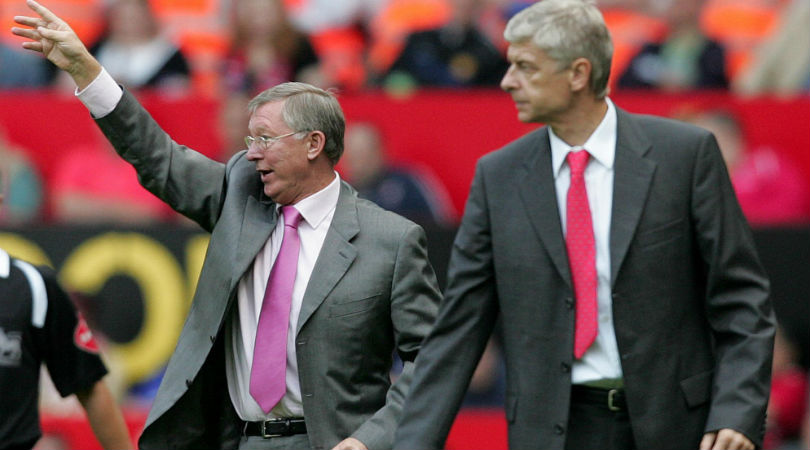
Making Arsenal vs Manchester United the game to watch
Toxic, aggressive, theatrical and with a grudging respect lying underneath, Wenger’s skirmishes with Alex Ferguson lent the English top flight an edge that we rarely get to witness. Arsenal’s clashes with Manchester United never failed to disappoint, and neither did the verbal jousting between the pair; Wenger’s “everyone thinks they’ve got the prettiest wife at home” was perhaps the most legendary joust of all.
He made football worth watching even if you didn’t support either of the clubs and, for a time, Arsenal vs Manchester United was the box office draw of the Premier League season, more so than United vs Liverpool or either the Manchester or north London derbies.
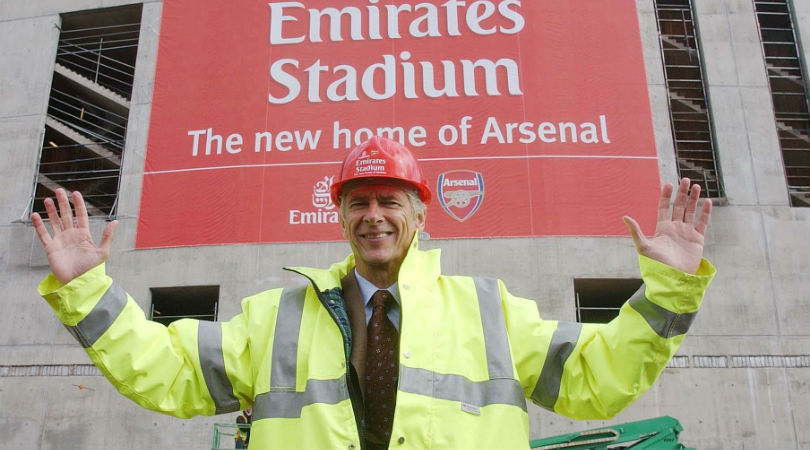
His fierce loyalty to the club
Yes, Wenger is very well paid to do his job and is in no way a servant to the club, but the loyalty he's shown Arsenal shouldn't be underestimated. The move to the Emirates in 2006 changed things massively for the Gunners, with the financial restraints placed on Wenger coinciding with heavy external investment in other teams in the Premier League.
The landscape changed, and many coaches would’ve taken up one of the offers made by the likes of Paris Saint-Germain, Real Madrid or the France national team, but Wenger stayed put.
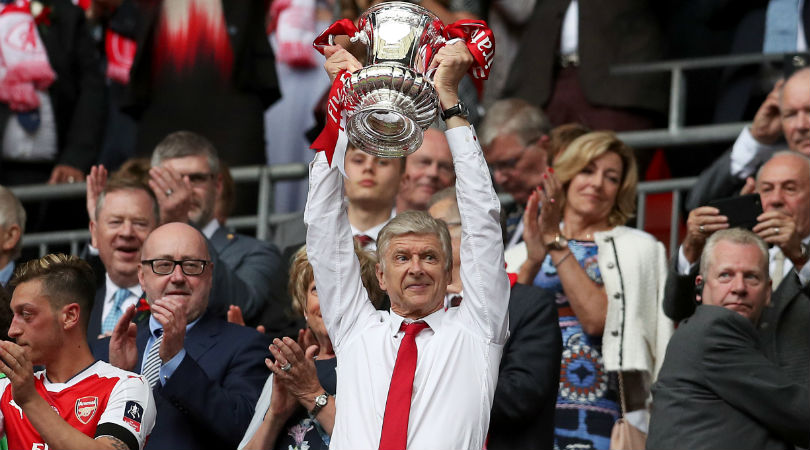
Seven FA Cup wins, including three while 'in decline'.
When the dust has settled on the last few seasons, Wenger’s achievements in his 22 years in charge of Arsenal will be seen for what they really are. Under the Frenchman, Arsenal have won seven FA Cups – the same number as Liverpool and Chelsea have won in their history.
Even in their recent, ‘fallow’ period, Arsenal have won the tournament; while the FA Cup may not carry the prestige of a Premier League or Champions League title, to win the trophy so frequently is a truly remarkable achievement.
 Join The Club
Join The Club










